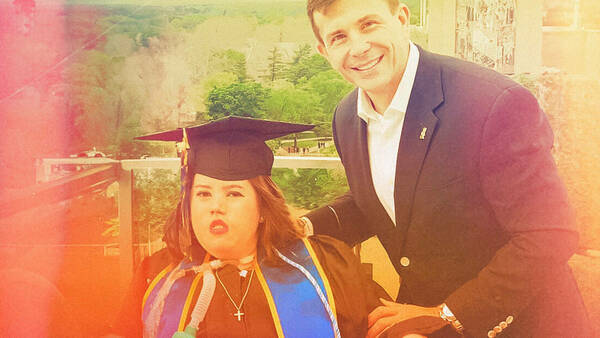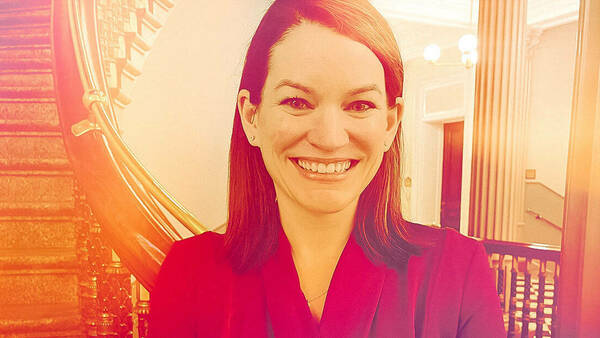Roberto Larios ’10 has always valued community—as a Film, Television, and Theatre major at Notre Dame and now in his job at Verve, a talent and literary agency in Los Angeles. Since he took his first production class at Notre Dame, Larios had a deep appreciation for how important collaboration is in filmmaking.
“Everyone that I had classes with—we were an inclusive support network for each other,” Larios says. “I feel like in some other majors, it’s a lot of individual focus, thus more competitive. Versus in film, we were doing these group projects together with four or five or six people. That was really a great experience to see and have this collaborative effort where we all succeed or we all fall short of our goals together.”
Larios also found community at Notre Dame through MEChA, an organization aimed at empowering and promoting the rights of Latino students. In addition to being MEChA’s co-president his senior year, Larios served as the leader of the Latino Freshman Retreat his junior and senior year, helping to create a sense of belonging for those who might have felt a bit displaced upon arriving at Notre Dame.
“We wanted to build a sense of community, especially for those coming from a different part of the country, where coming to South Bend is a shock to the system,” Larios says. “We wanted to provide a support system of people who either look, think, or remind you of people back home—or yourself.”
Now, in his current role as an assistant at Verve, Larios is still working to empower people from diverse backgrounds—this time by helping to ensure they are represented off the screen. He reads material to identify writers who are worth discussing and pursuing as clients. Even when he first started at Verve in the mailroom, Larios knew what sort of voices he wanted to amplify, almost immediately expressing concern about diversity amongst the clients the agency represented.
“I started speaking up a few weeks into my time there. I brought it up to agents and then to the partners—asking, what are we doing to grow our client roster, and how can I help?” Larios says. “I wanted to play a part in Verve’s mission of trying to find new and exciting diverse voices.
Larios began looking for other avenues to find such voices and to collaborate with those in the creative Latino community. He joined a growing community known as the LAtin Tracking Board, which helps to foster a sense of belonging and support for aspiring Latino creatives, executives, and agents in the entertainment industry. In addition, Verve had already begun speaking with the National Association of Latino Independent Producers, but Larios picked up the conversation and started seriously pursuing a relationship with the organization.
Verve now partners with NALIP to host writing seminars, offering feedback on participants’ material with a focus on helping them navigate the process of acquiring representation. The agency provides similar support for writing workshops put on by the National Hispanic Media Coalition. And its agents have spoken on panels and attended events hosted by both groups. In return, the heads of these organizations have offered insight on how Verve can help represent Latino voices in entertainment.
Larios’ efforts have paid off in numerous ways. In the fall of 2018 he was named one of Variety’s 10 Assistants to Watch, a distinction given to up-and-comers working behind the scenes in entertainment. The honor is rewarding, Larios says, as is his continued work to empower diverse voices.
“From a Latino standpoint, it means that we’re more than just maids, gangbangers, and random house staffers—both on and off the screen,” he says. “We can be executives, creatives, and agents too.”
Larios saw some of his own life reflected in Disney’s 2017 film Coco, which tells the story of Diego, a young boy from Mexico who follows his dream of becoming a musician despite his family’s intense disapproval.
“My parents for a while were always telling me, ‘You need to get a career. You need to be a doctor or a lawyer.’ Interestingly enough, this was motivated by what was seen on screen as we typically spent Sundays at the movie theater when I was growing up,” Larios says. “So, when I told them I wanted to do film, their initial reaction was, ‘Why? Don’t do that.’”
But like Diego’s family, his parents eventually came around, voicing their wholehearted support when he decided to move back home to Chicago to pursue an MFA in Screenwriting from DePaul University.
“I give credit to my father for the push back into film as I was working in Dallas for a few years and he knew how unhappy I had grown,” Larios says. “He was the first to say, ‘You were so excited and happier when you were in college, when you were around film. Come back home and find that again.’”
Larios believes films like Coco have the power to show Latino youth the world of possibilities before them. “When they see characters who look like Diego they think, ‘Oh, he’s playing the guitar. I want to play the guitar,’” he says. “And then they tell their parents, ‘Look, he is doing it so I believe I can too.’”
But it’s not all about inspiring. “We have clients who have had certain successes, certain failures, certain pitfalls, certain obstacles,” Larios says. “They can write to it and be able to express it to others in a way that no one else can.” That authenticity, in his view, is why diversity behind the camera is so vital for making all people feel represented.
“From a viewer’s standpoint, you want people who are actually like the individuals facing that narrative in their life every day,” he says. “From a creative’s standpoint, you want the viewer to see it, watch it, and say, “That’s my story, too.’”



